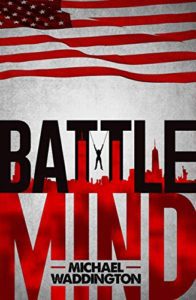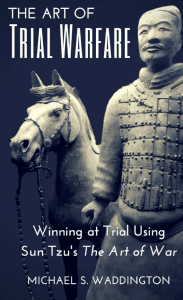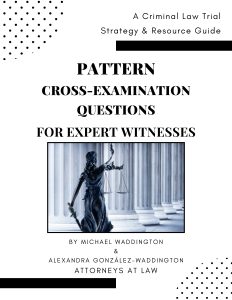Our Lawyers

Michael Stewart Waddington
Partner
Michael Stewart Waddington – Partner
Click here for full bio – Michael Waddington is a criminal defense lawyer, and best-selling author who defends cases in military courts worldwide. He also defends military personnel who are under investigation and have not yet been charged. He focuses on defending serious criminal cases including sex crimes, war crimes, violent crimes, and white-collar crimes.
Beyond the courtroom, Michael harnesses his fervor and discipline through Brazilian Jiu-Jitsu, reflecting his unwavering commitment in both his professional endeavors and personal passions.
Mr. Waddington has been reported on and quoted by hundreds of major media sources worldwide. He has provided consultation services to CNN Investigative Reports, 60 Minutes, Katie Couric, ABC’s “Nightline,” the BBC, German Public Television, CNN, CBS, the Golden Globe-winning TV series “The Good Wife,” and various other international media outlets.
Michael & his law partner, Alexandra, wrote three of the leading textbooks on cross-examination, Pattern Cross-Examination for Sexual Assault Cases: A Trial Strategy & Resource Guide, Pattern Cross-Examination for DNA and Biological Evidence, and Pattern Cross-Examination of Expert Witnesses, published by the National Association of Criminal Defense Lawyers (NACDL). These books are used by criminal defense lawyers worldwide. In 2020, he published his first novel, Battlemind, a military legal thriller. Click to view on Amazon.

 Mr. Waddington’s book, Kick-Ass Closings: A Guide to Giving the Best Closing of Your Life, is the #1 rated book on closing arguments. It has been an Amazon bestseller since it was published. The book contains nearly 500 pages of Mr. Waddington’s best closings and hundreds of outstanding arguments made by the nation’s top criminal defense lawyers.He is also the author of the bestselling book, The Art of Trial Warfare. Click here to view the book on Amazon.
Mr. Waddington’s book, Kick-Ass Closings: A Guide to Giving the Best Closing of Your Life, is the #1 rated book on closing arguments. It has been an Amazon bestseller since it was published. The book contains nearly 500 pages of Mr. Waddington’s best closings and hundreds of outstanding arguments made by the nation’s top criminal defense lawyers.He is also the author of the bestselling book, The Art of Trial Warfare. Click here to view the book on Amazon.
He appeared in a major CNN documentary, “Killings at the Canal” and some of his cases have been the subject of books and movies. These include the Academy Award-winning documentary “Taxi to the Dark Side” (view trailer), the 2019 feature film, “The Kill Team,” (and the 2013 documentary), the books “The ‘Good Soldier’ on Trial,” “Strike & Destroy,” and Brian De Palma’s “Redacted.” (De Palma also directed “Scarface” and “Carlito’s Way”).
 Mr. Waddington teaches trial advocacy throughout the United States. At the National Trial Lawyers Summits, Mr. Waddington shared the stage with legendary attorneys F. Lee Bailey (one of OJ Simpson’s lawyers), Mark Geragos (who defended Michael Jackson, Chris Brown, and other celebrities), and Mark O’Mara (George Zimmerman’s lawyer), to teach cutting-edge trial techniques to attorneys.
Mr. Waddington teaches trial advocacy throughout the United States. At the National Trial Lawyers Summits, Mr. Waddington shared the stage with legendary attorneys F. Lee Bailey (one of OJ Simpson’s lawyers), Mark Geragos (who defended Michael Jackson, Chris Brown, and other celebrities), and Mark O’Mara (George Zimmerman’s lawyer), to teach cutting-edge trial techniques to attorneys.
On repeat occasions, Mr. Waddington gave lectures at the NACDL’s National Sex Crime Conference in Las Vegas, NV. One of his lectures, Defending a Military Client Charged With Sexual Assault, was tailored to winning sex crime cases in military courts.
On multiple occasions, Mr. Waddington was a featured speaker at the NACDL Forensic Science Conference. He taught lawyers how to Cross-Examine the Prosecution’s Forensic Experts and Impeach Prosecution Witnesses in his lectures. He also lectured at the NACDL Forensic Science Conference in Las Vegas. His topic, Using Forensic Science to Create Reasonable Doubt in Sexual Assault Cases, focused on impeaching rogue sex assault examiners (SANEs & SAFEs) using cutting-edge research and medical textbooks. He also taught techniques to expose forensic psychologists and psychiatrists who testify about junk science, such as “Counterintuitive Victim Behavior” and “Tonic Immobility.”
From 2013 to 2024, Mr. Waddington wrote chapters in the American Bar Association (ABA) annual book, “The State of Criminal Justice.” He also published Trial Warrior’s Book of Wisdom: A Compilation of Quotes for Success in Law and Life.
Call 1-800-921-8607
or
Fill out this form to speak with a criminal defense attorney.
We defend criminal cases throughout Florida (Military, Federal & State) & Army, Air Force, Navy, Marine Corps, and Coast Guard cases worldwide.
Alexandra González-Waddington – Partner
Alexandra is a founding partner of the González & Waddington, LLC, and a Georgia registered mediator. She has represented and defended hundreds of defendants charged with sexual assault and has worked on some of the most notorious war crime cases stemming from the Iraq and Afghanistan wars.
Hundreds of major media sources worldwide have reported on Alexandra’s cases, including 60 Minutes, ABC’s Nightline, The Rolling Stone, the BBC, Fox News, German Public Television, CNN, CBS, and various other international media outlets.
Alexandra co-authored three of the leading textbooks on cross-examination, Pattern Cross-Examination for Sexual Assault Cases: A Trial Strategy & Resource Guide, Pattern Cross-Examination for DNA and Biological Evidence, and Pattern Cross-Examination of Expert Witnesses. All of these books are used by criminal defense lawyers worldwide.
Alexandra has lectured at national legal conferences, such as the National Association of Criminal Defense Lawyers (NACDL), and the National Trial Lawyers Summit. Her lectures covered trial advocacy, cross-examination, expert witnesses, and jury selection. One of her popular lectures, Appealing to Diverse Juries Without Building Walls, taught trial lawyers how to effectively select and communicate with diverse juries in criminal and civil cases. Relying on the firm’s jury trial experience and academic studies, Alexandra demonstrated how picking a jury based on stereotypes can cause cases while excellent Voir Dire can help win cases.

Our Attorneys
 Alexandra was one of the first lawyers to serve as a Public Defender for the Augusta Judicial Circuit. During that time, she worked on various types of cases, including rape, sexual assault, larceny, violent crimes, and domestic violence. She graduated from Temple Beasley School of Law in Philadelphia, PA where she completed Templeʼs nationally ranked Integrated Trial Advocacy Program.
Alexandra was one of the first lawyers to serve as a Public Defender for the Augusta Judicial Circuit. During that time, she worked on various types of cases, including rape, sexual assault, larceny, violent crimes, and domestic violence. She graduated from Temple Beasley School of Law in Philadelphia, PA where she completed Templeʼs nationally ranked Integrated Trial Advocacy Program.
From 2015-2021, she wrote chapters in the American Bar Association (ABA) books, “The State of Criminal Justice.” This annual publication examines major issues, trends and significant changes in the criminal justice system and is one of the cornerstones of the ABAʼs Criminal Justice Sectionʼs work. This publication serves as an invaluable resource for policy-makers, academics, and students of the criminal justice system.
Alexandra was born in Ponce, Puerto Rico. She graduated from Duquesne University in Pittsburgh, Pennsylvania with a Bachelor of Arts degree.
